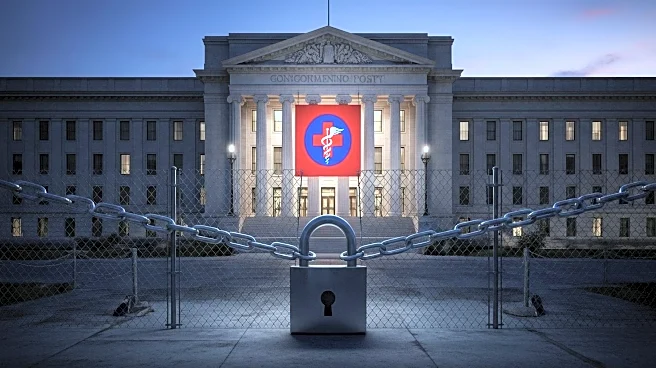What is the story about?
What's Happening?
The federal government has officially shut down as of midnight, following a stalemate between Democratic lawmakers and President Trump over health care policy changes. Democrats are demanding the reversal of Medicaid cuts and the extension of health care subsidies, which Republicans have refused to include in a funding measure. As a result, federal agencies are unable to operate normally, leading to potential layoffs and program eliminations. The Senate is set to reconvene, while the House remains in recess, as Speaker Mike Johnson aims to pressure Democrats into negotiations.
Why It's Important?
The shutdown has significant implications for federal workers and the public, as essential services may be disrupted. Federal employees, including law enforcement officers and military personnel, are expected to work without pay until funding resumes. The shutdown also highlights ongoing political tensions over health care policy, which could impact future legislative negotiations. The economic consequences of a prolonged shutdown could be severe, affecting government operations and public services nationwide.
What's Next?
The Senate will reconvene to discuss potential solutions, while the House remains in recess. President Trump has threatened mass layoffs and program eliminations if the shutdown continues. The situation remains fluid, with both parties trading blame and seeking a resolution. The outcome of these negotiations will determine the duration of the shutdown and its impact on federal operations.
Beyond the Headlines
The shutdown underscores the deep political divide over health care policy, with potential long-term effects on public health and economic stability. The use of shutdowns as a political tool raises ethical concerns about governance and the prioritization of public welfare.















